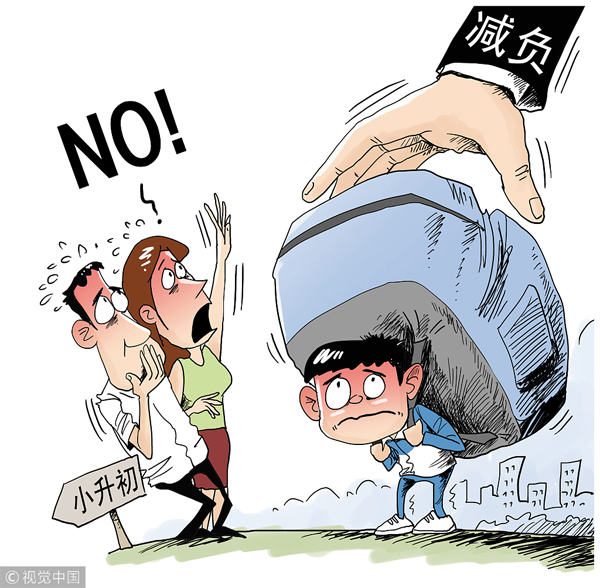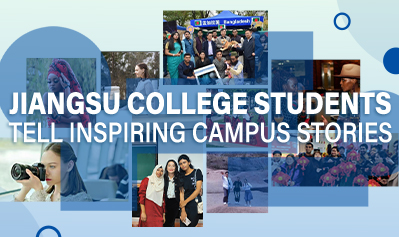Jiangsu spares no efforts to check cram schools

A cartoon depicts the contradictions among schools, students and parents. The school wants to lift the heavy workload on the students while their parents pose strong disagreement. [Photo/VCG]
China is carrying out comprehensive inspections over private-tuition cram schools, as the State Council's General Office issued a guideline on Aug 22 to regulate domestic cram schools from primary through secondary grades, aiming to ease the heavy workloads on the students.
The afterschool tutoring classes have "derailed" from its original intention of helping students in real needs to improve their academic performance, to now becoming a mass-market or even essential part of student life, leading to peer pressure among students and competitive pressure among parents.
The guideline soon raised great concern among the public. Articles that gained the most attention were those requiring cram schools to annually review their certificates and licenses and local governments to publish lists of qualified institutions and those failing to meet the standards on their websites.
The guideline also stipulated to narrow the tuition expenditure charging cycle to less than three months, as fees paid by parents at one time are usually for a semester's or an academic school year's study, placing undue financial burdens on the grownups.
Supervision on these institutions is being jointly conducted by authorities from the fields of education, civil affairs, human resources and social security, and market regulation. And those that do not meet the government standards ought to make prompt corrections.
East China's Jiangsu province has taken one step ahead to release local youngsters' extracurricular burdens. The province announced a series of regulating plans earlier this April, putting on the agenda to carry out thorough inspections, corrections, and follow-up supervision in three phases.
Thorough inspections were completed in June, revealing 259 institutions of serious safety problems, 554 ones without certificates and licenses, and 262 others teaching students more advanced materials than what is appropriate for their school grade.
Suzhou city in South Jiangsu announced the first batch of qualified cram schools at the end of July, 321 private-tuition institutions were on the list. Zhang Kewei from the local educational bureau said authorities will always keep an eye on the institutions. Those being charged or suspected will be thrown out of the list once checked. The second batch will be announced at the end of this year.
Yang Dongping, president of the 21st Century Education Research Institute, said the real solution to reducing students' academic workload is to increase the quality of regular school education and to ensure that parents will only feel the need to send their children to cram schools when they want to develop artistic or athletic talent.


 Jiangsu college students tell inspiring campus stories
Jiangsu college students tell inspiring campus stories